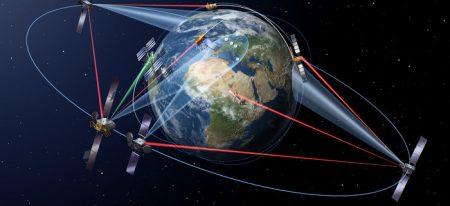(by Francesco Matera) Last January, GPS images of Russian troops massing on the borders of Ukraine warned in advance of an imminent invasion. During wartime, satellite links kept frontline troops in touch with their commanders. Meanwhile, rocket launchers himar Guided by GPS, they helped shift the tide of war in Ukraine's favor by allowing Russian artillery and ammunition dumps to be located and destroyed.
In the early days of the war, Russia launched cyber attacks on Ukraine's satellite communications systems. Last year it carried out anti-satellite tests in low Earth orbit, demonstrating the ability to conduct attacks in space.
It is no coincidence that in recent years, United States, Russia, China e India have significantly strengthened their spatial capabilities.
The conflict in Ukraine has shown, therefore, that the spatial domain has become instrumental in directing the direction of a war. For this reason, the use of new global rules is essential in order to govern human activity in orbit around the Earth, in conditions of equality and sustainability.
In this context, Europe cannot and must not fall behind. European ministers will meet in Paris this week to discuss the future of the European space program aware that the security and prosperity of our continent will increasingly depend on the ability to dominate in space.
The lesson learned from the war in Ukraine, where Russia has hit critical civilian infrastructures, prompts us to undertake more credible and sustainable defense policies with conviction, also because, as we have seen, infrastructures have been hit outside the borders of the conflict, such as the underwater gas pipelines that bring gas to Europe. Undersea cables for intercontinental internet connections are also in danger.
Moscow has demonstrated, with this war, that critical infrastructures can become targets of any future conflict. When we talk about critical infrastructures we cannot fail to consider those present in Space which directly impact on modern society, increasingly interconnected and dependent on satellite services.
Last month a senior Russian official told the United Nations that commercial satellites of the United States and its allies could be “legitimate targets for retaliatory attacks".
We need clear rules
In a context where the rules of the game are not at all clear, low Earth orbit risks becoming dangerously congested with ever larger objects. There are more and more launches into orbit of mega-constellations of satellites by companies such as SpaceX e Amazon. In 2018 there were only 2.000 satellites in orbit, by the end of this decade, according to some estimates, they could become 100.000. The alarm was raised by the European Space Agency and NASA: “the threat of overcrowding and collisions due to the presence of millions of debris of different sizes in Space is real”.
Therefore, universal rules are urgently needed to understand which activities can be supported by terrestrial orbits, as we have done for maritime routes and civil airspace. Regulators should immediately establish clear conditions for satellite companies intending to launch their own systems.
What international law says
The problem has been extensively dealt with by the professor Giuseppe Paccione, coordinator and manager of our “Observatory of International Law”. Most states, writes Paccione, recognize the right to limit their sovereign freedom to act, so much so that there is an international convention governing the exploration and use of outer space, as well as the activities of state actors in space, called “Outer Space Treaty” of 1967. This international agreement has offered an essential contribution to the objective of preserving peace in the outer space, even if the principles of freedom contained in it are considered flexible enough to be able to apply the maxim quod lege non prohibitum, licitum est, in the sense that there are no rules applicable to all aspects of space activities.
This Treaty has been defined as a cornerstone of the international law of the outer space and the principles contained in this international instrument are considered the source and substance from which they derive from the further IV Treaties. Also, point to note, contains the primary prohibition of extraterrestrial militarization, in the sense that outer space cannot be used for military purposes and, (in primis), with weapons of mass destruction, given the commitment of the States not to place objects carrying nuclear weapons or any other type of war instrument into earth orbit.
It should be noted that, however, the direct consequence of this obligation, set out in the context of this international convention, is criticized as full of gaps deriving from its formulation. rises, inter alia, a range of key points of misinterpretation and regulatory gaps, such as, for example, the fact that the rule does not prevent the use and placement of military instruments other than those of mass destruction on the orbits of the Moon and other celestial bodies, in the inter-orbital space between celestial bodies and in deep space.
Technological developments such as the establishment of stable space stations and man-made test facilities suspended in outer space may allow the testing of conventional and other weapons on such stations in space, provided they do not violate the provisions of the Treaty on Principles the activities of States in the field of exploration and use of outer space.
It must, in a certain way, be emphasized that ASAT operations and the launch of suborbital intercontinental missiles, i.e. those that are launched on a suborbital trajectory, are not governed by any provision, pursuant to the 1967 Treaty. The ASAT test cases, therefore, like the one carried out in 2007 by the Beijing authorities, despite having received international condemnation, they are not openly in conflict with the Outer Space Treaty. Furthermore, it is believed that it is necessary to highlight that the convention de quo it is flawed for the simple reason that it does not support a restriction around non-kinetic or physical weapons such as, for example, cyber warfare.
